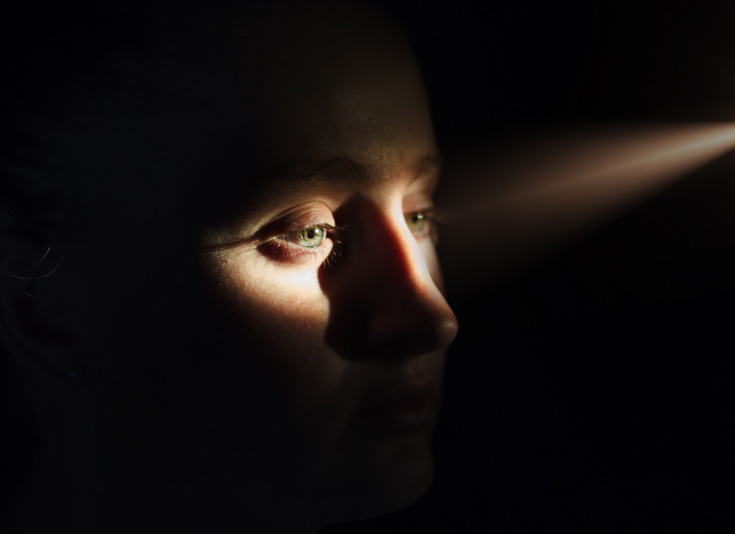
What do we all have in common? Do we know everything about coronavirus? Do you think COVID-19 is affecting our mental health?
Everyone’s in the world are facing problems due to coronavirus disease COVID-19 but it depends on you, how you take. Health doesn’t always comes from medicine. Most of the time it comes from peace of mind, peace of the heart, peace of soul. It comes from laughter and love.
Coronavirus disease COVID-19 is rapidly spreading day by day. Coronaviruses are a group of related viruses that cause diseases in mammals and birds. In humans, coronaviruses cause respiratory tract infections that can be mild, such as some cases of the common cold (among other possible causes, predominantly rhinoviruses), and others that can be lethal, such as Severe acute respiratory syndrome(SARS), Middle East respiratory syndrome (MERS) and Coronavirus disease 2019 (COVID-19).
The disease was first identified in December 2019 in Wuhan, the capital of China's Hubei has been named coronavirus disease (COVID-19) – ‘CO’ stands for corona, ‘VI’ for virus, and ‘D’ for disease. Formerly, this disease was referred to as ‘2019 novel coronavirus’ or ‘2019-nCoV.’ It has since spread globally, resulting in the ongoing 2019–20 coronavirus pandemic. The virus is transmitted through direct contact with respiratory droplets of an infected person (generated through coughing and sneezing), and touching surfaces contaminated with the virus. The COVID-19 virus may survive on surfaces for a few hours to several days, but simple disinfectants can kill it. Studies to date suggest that the virus that causes COVID-19 is mainly transmitted through contact with respiratory droplets, rather than through the air.
People of all ages can be infected by the new coronavirus (2019-nCoV). A Chinese study has found older people, and people with pre-existing medical conditions such as asthma, diabetes, heart disease, and cancer had a 79 % chance of being admitted to intensive care or dying from the virus, due to their weakened immune systems and appear to be more vulnerable to becoming severely ill with the virus.
It is causing widespread concern with fear and stress, all of which are natural and normal reaction to the changing and uncertain situation that everyone finds themselves. This new illness certainly in frightened and needs attention but it is important to note that far more people die from an illness that is too familiar to the seasonal flu. Its effects on many people’s usual activities, routines or livelihoods – levels of loneliness, depression. According to WHO, harmful alcohol and drug use, and self-harm or suicidal behavior are also expected to rise.
The coronavirus disease can significantly affect mental health for everyone. Mental illness result in physical changes like changes in thinking, feelings and behaviors. We can see common physical signs for anxiety include increased heartbeat or butterflies in the stomach, people might think they’re unable to cope and may feel scared, restless or stressed out and even in the absence of mental illness, many people will experience some of theses symptoms during the pandemic and the common physical change for depression might be changes in sleep, appetite or energy. Behavioral signs might include withdrawing from people or activities, substance use or poorer performance at work or school and again many people who don’t have clinical depression will experience some of these symptoms during the pandemic. You might be feeling stressed, worried, fearful and ruminate over negative thoughts.
People who were in quarantined and either had symptoms or thought that they might get sick, there was a lot of legitimate anxiety as more people were dying. If the stress and anxiety worsen, "it may trigger negative physical symptoms such as an elevated heart rate, insomnia, digestive issues, weakness and fatigue.
We can improve our mental health by getting plenty of sleep, well balance diet meals, social relation, stress management, managing media, set goals and information intake and avoiding risky substance use. With weeks and months of the coronavirus disease pandemic ahead, it is important to have down time. Mind recommends continuing to access nature and sunlight wherever possible. Do exercise, eat well and stay hydrated. People who drink more than standard drinks per day experience more physiological distress than those who do not.
With the awareness of these mental health risks, we can work towards coping with this challenging situation and reduce the potential impact on our mental health.
People think due to coronavirus disease that I’m facing economically, psychological and physical problems but you are not only the one. We all are facing the same problems. According to WHO, coronavirus disease cases deaths are 21% and recovered are 79%.So, let's motivate each other by spreading message that we can fight with COVID-19 and win over it breaking chain of coronavirus disease. So, maintain self-quarantine and stay safe.
Terisa Tamang is the founder/president of The Dhairya Cancer Foundation.



_20220508065243.jpg)


Leave A Comment